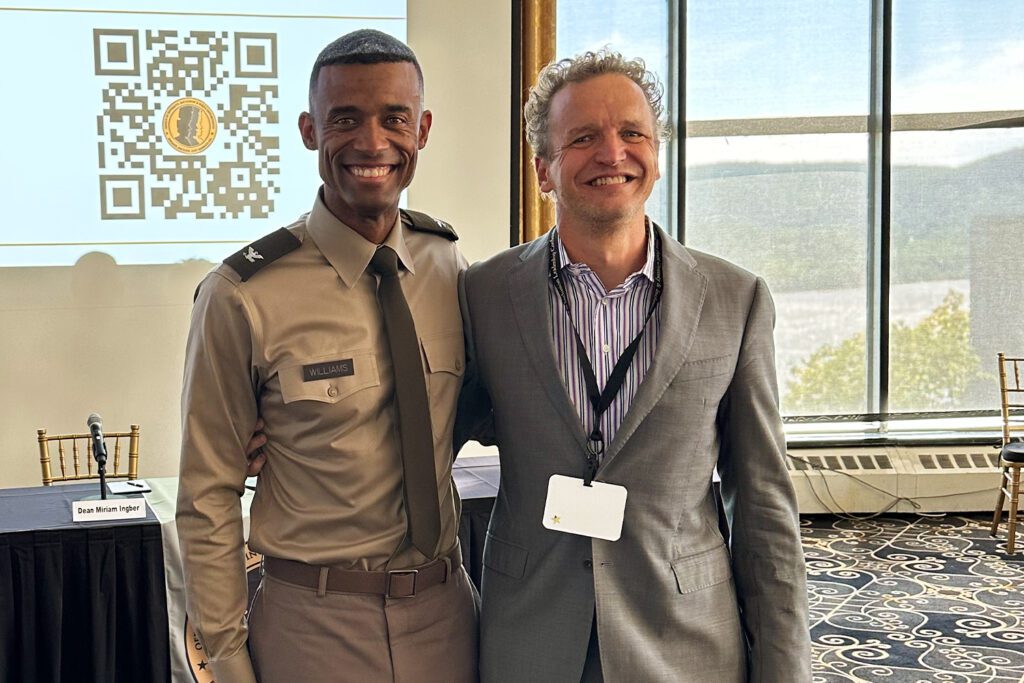Earlier this fall, Professor Ben Barton presented his research on the implications of the Supreme Court’s Students for Fair Admissions v. Harvard decision on admissions for the U.S. military academies. The Diversity & Inclusion Leadership Conference was hosted by the United States Military Academy at West Point and was attended by faculty, staff, and students from all of the military academies. Professor Barton was invited to speak by Colonel Winston Williams (UT Law ’04), Head of the Department of Law at West Point.
Professor Barton spoke on a panel titled “The Future of College of Admissions.” He was joined by co-panelist Dean Miriam Ingber, Yale Law School’s Associate Dean of Admissions. Colonel Williams served as moderator. The discussion focused on the Students for Fair Admissions decision, its impact on higher education admissions generally, and its potential impact on the U.S. military academies. Professor Barton explained the nuances of the case and what the Supreme Court held—and perhaps more importantly what it did not hold. The Court made clear that the admissions programs of Harvard and UNC were unconstitutional because those admissions programs failed to state a compelling governmental interest, and even if they had, their programs were not narrowly tailored to serve any such interest. Professor Barton emphasized that the Court did not overrule former precedents and certainly did not establish that race cannot be a factor in admissions decisions.
In footnote 4 of Students for Fair Admissions, the Court observed that military academies had not been sued in the Harvard case and might have “potentially distinct interests.” Professor Barton explained that the military academies should treat this footnote as an invitation to do what Harvard and UNC did not: demonstrate that diversity at the service academies (and then later in the military hierarchy) is a compelling governmental interest and that their programs are narrowly tailored to achieve that goal.
During the question-and-answer portion of the panel discussion, audience members shared amazing stories of how and why diversity is so important at the service academies. The audience pressed Professor Barton to share what he thought would be the effect of the Court’s decision on the academies. Professor Barton responded that he was hopeful but not a Pollyanna. He suggested that they should “strap in because you’re going to be sued next.” His prediction proved accurate. West Point was sued three weeks later.
Professor Barton remains hopeful that West Point can tell its story and convince the Supreme Court. In his view, a less diverse command structure is a less effective command structure, and he feels very strongly that West Point will be able to demonstrate that empirically and anecdotally.
Professor Barton explains that the military has been a key actor in desegregation. On July 26, 1948, President Truman signed an executive order officially desegregating the military. This was before Jackie Robinson and before the civil rights era. In many ways, desegregating the military was the first and most important step to ending Jim Crow in this country. The military’s role as a champion of the importance of diversity remains key today. Professor Barton says that it should be obvious that the military—from rank-and-file membership to command structure–should look like the country it protects. We know that diverse groups make better decisions in war and peace. However, Professor Barton acknowledges the challenges ahead for diversity and inclusion efforts, noting that they are a political flash point.
